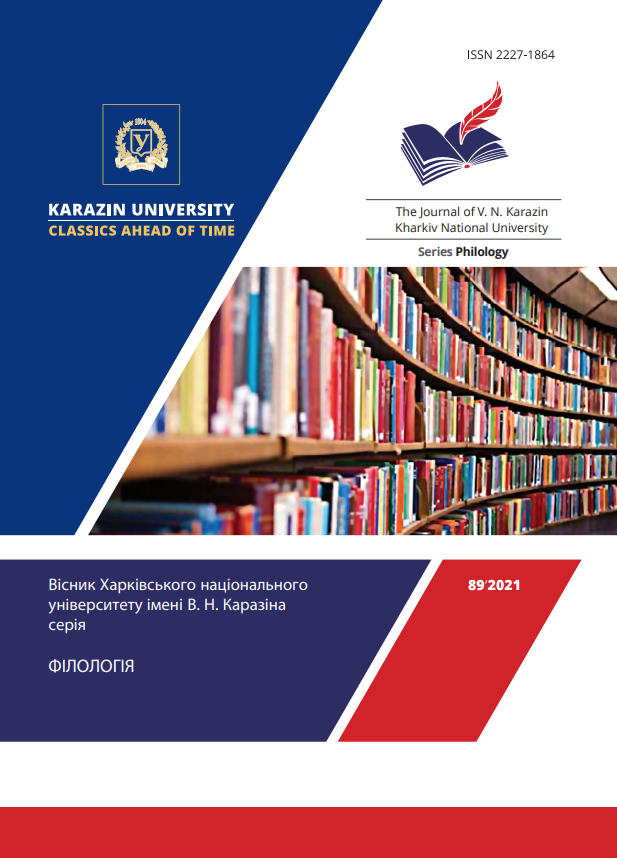(Un)uttered mystery of existence in V. Nabokov’ short stories “The Word” and “The Thunderstorm”
Abstract
The article is devoted to identifying the poetological and semantic features of V. Nabokov’ short stories “The Word” and “The Thunderstorm”. The analysis of the first of them is directly connected with the theme of verbal art, important to Nabokov, which in this case acts as the semantic center of the work and is realized through the comparison of two contrastive plans set, on the one hand, by the motif of the hero’s verbal weakness, and on the other, by the motif of “shining”, explanatory divine word. The content of these two plans is shaded by the theme of the otherworldly, a double-world, which are significant of the entire Nabokov’s art. To clarify the writer’s intention, the author of the article turns to the two most important pretexts of “The Word”: the poems of A. Pushkin and F. Tyutchev. The article demonstrates that, focusing on the works of his predecessors, Nabokov borrowed from them those techniques and motifs that could be most organically inscribed in his own artistic system: Nabokov refuses not only to depict his hero against the background of concrete historical reality, but also from the desire to substantiate his psychological reactions. The conventional world-model of the story is subordinated to game strategies aimed at comprehending the essence of creativity and its role in human life. Only the word, taken in its aesthetic function, is capable, according to Nabokov, to bring a person closer to the secrets of existence, to penetrate into the realm of the otherworldly, rationally incomprehensible. Thus, the angelic Word, rendered in the title, acts as a metaphor for creativity, embodied by Nabokov in the artistic fabric of the work. In the aspect of realizing the themes of double world and verbal creativity, the article also analyzes “The Thunderstorm”, which clearly reveals game narrative strategies. Thus, Nabokov’s method of “an open finale” assimilated by the literary tradition appears as a false narrative move, emphasizing the author’s modernistic intentions. Using the example of the analysis of the indicated stories, the article shows that Nabokov’s poetics vividly demonstrates the principles of modernistic writing with its headline setting on creative comprehension and figurative reflection of the irrational foundations of human life.
Downloads
References
Boyd B. Vladimir Nabokov: russkiye gody. Biografiya : per. s angl. Sankt-Peterburg, 2010. 696 s.
Yerofeyev V. V poiskakh poteryannogo raya (russkiy metaroman V. Nabokova). URL: http://samlib.ru/v/victor_v_e/v_poiskax_raya.shtml (data posilannya: 23.03.2021).
Klassik bez retushi. Literaturnyy mir o tvorchestve Vladimira Nabokova: kriticheskiye otzyvy, esse, parodii. Moskva, 2000. 688 s.
Nabokov V. V. Russkiy period. Sobraniye sochineniy v 5 tomakh. Tom 1. Sankt-Peterburg, 2004. 832 s.
Nabokov V. V. Russkiy period. Sobraniye sochineniy v 5 tomakh. Tom 3. Sankt-Peterburg, 2006. 848 s.
Nabokov V. V. Russkiy period. Sobraniye sochineniy v 5 tomakh. Tom 4. Sankt-Peterburg, 2002. 784 s.
Nabokov V. V. Russkiy period. Sobraniye sochineniy v 5 tomakh. Tom 5. Sankt-Peterburg, 2008. 832 s.




